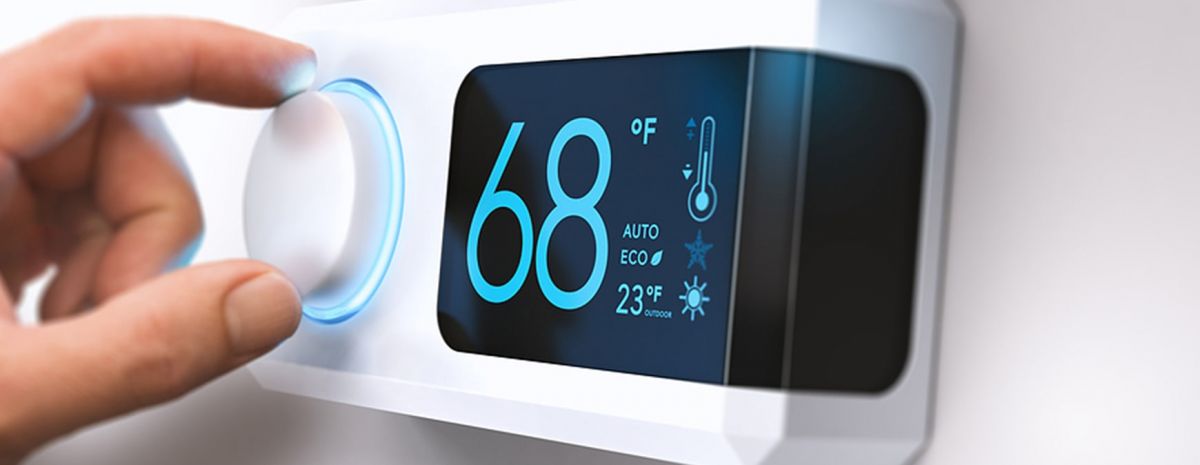
A single household can spend over $2,200 annually for home energy bills and emit twice as much greenhouse gas as the average car. Almost half of these costs stem from keeping the home comfortable with heating and cooling.1
HVAC technicians can promote home energy efficiency by performing maintenance and recommending energy efficient HVAC systems to their customers.1 This is one reason why energy efficiency can be an important subject for students in HVAC classes to learn before entering the field.
In this article, you’ll find an introduction to optimizing the energy efficiency of HVAC equipment.
What Factors Influence the Energy Efficiency of an HVAC System?
Several factors can play a role in the overall energy efficiency of an HVAC system. While this list is not comprehensive, here are four of the key factors to consider.
1. HVAC Maintenance
The top two issues that can affect the efficiency of an HVAC system are dirt and neglect. Something as seemingly simple as a clogged and dirty air filter can drive up energy consumption by 5% to 15%.2 These two problems are also the leading cause of system failure, underscoring the importance of routine HVAC maintenance.1
Get Started on the Path to a New Career
Fill out our form to learn how we can help you change your life.
Routine HVAC maintenance can entail the following tasks:1
- Tightening electrical connections.
- Lubricating moving parts.
- Inspecting the condensate drain.
- Examining system controls.
- Inspecting flue pipes.
- Checking gas or oil connections and components.
- Cleaning coils.
- Checking refrigerant charge.
- Cleaning and adjusting blower system components.1
2. Thermostat Setting
The setting of the thermostat, whether it is a programmable or manual unit, can have a lot to do with energy consumption. Adjusting a customer’s thermostat down by between 7 and 10 degrees for an 8-hour portion of the day can yield a 10% energy savings.3
3. Ductwork
Roughly 20% of heated and cooled air moving through the ductwork with forced-air systems gets lost because of issues like holes, leaks and poor duct connections. Ductwork performance can be improved by sealing leaks, insulating ducts and checking for disconnected ductwork where the ducts attach to registers and vents.1
4. Type of HVAC Equipment
Different types of HVAC equipment can have varying levels of efficiency. If a customer has taken other steps to boost the efficiency of his or her HVAC system and is not seeing much improvement, the type of equipment being used may be to blame. For example, a system between 10 and 15 years old may need to be replaced with an energy efficient unit.1
What Are Some Examples of Energy Efficient HVAC Systems?

Since the type of HVAC equipment can be directly related to how much energy a system uses, it can be helpful to know about some more efficient options.
Smart Thermostats
A smart thermostat connects to Wifi and has the ability to automatically adjust the settings for heating or cooling. For example, the thermostat can adjust the HVAC system settings so your home is most comfortable when you are there. Energy Star estimates that if every household in the U.S. used one of its smart thermostats, Americans could save $740 million annually in energy expenses.4
Ductless Mini-Split System
The ductless mini-split system can deliver both heated and cooled air to a home without ductwork. Mini-splits rely on a heat pump to transfer heat into and out of the home instead of burning fuels or using electricity to heat the air. They can use as much as 60% less energy than a resistance-based home heating system. The cooling system in a mini split uses sophisticated fans and compressors and can cut the cost of cooling by up to 30%.5
Geothermal Heat Pump
A geothermal heat pump (GHP) is a sophisticated heat system that is considered to be one of the most efficient available today. These systems utilize naturally available geothermal energy from the ground to provide everything from heating and cooling to hot water. The geothermal heat pump can be as much as 45% more energy efficient than a standard heating system.6
Why Is Energy Efficient HVAC Important?
Knowledge of energy efficiency, especially as it relates to HVAC equipment, can be important for a professional technician. Efficient systems have a big part to play in the comfort of customers in their homes and how much they spend on utility bills, while also helping to protect the environment.7
Additional Sources
1https://www.energystar.gov/ia/partners/publications/pubdocs/HeatingCoolingGuide%20FINAL_9-4-09.pdf
2https://www.energy.gov/energysaver/maintaining-your-air-conditioner
3https://www.energy.gov/energysaver/thermostats
4https://www.energystar.gov/products/heating_cooling/smart_thermostats
5https://www.energystar.gov/products/heating_cooling/ductless_heating_cooling
6https://www.energystar.gov/products/heating_cooling/heat_pumps_geothermal
7https://www.energystar.gov/products/heating_cooling/
Section on maintenance under header 1: https://www.energystar.gov/ia/partners/publications/pubdocs/HeatingCoolingGuide%20FINAL_9-4-09.pdf
This blog has been labeled as archived as it may no longer contain the most up-to-date data. For a list of all current blog posts, please visit our blog homepage at https://www.rsi.edu/blog/

